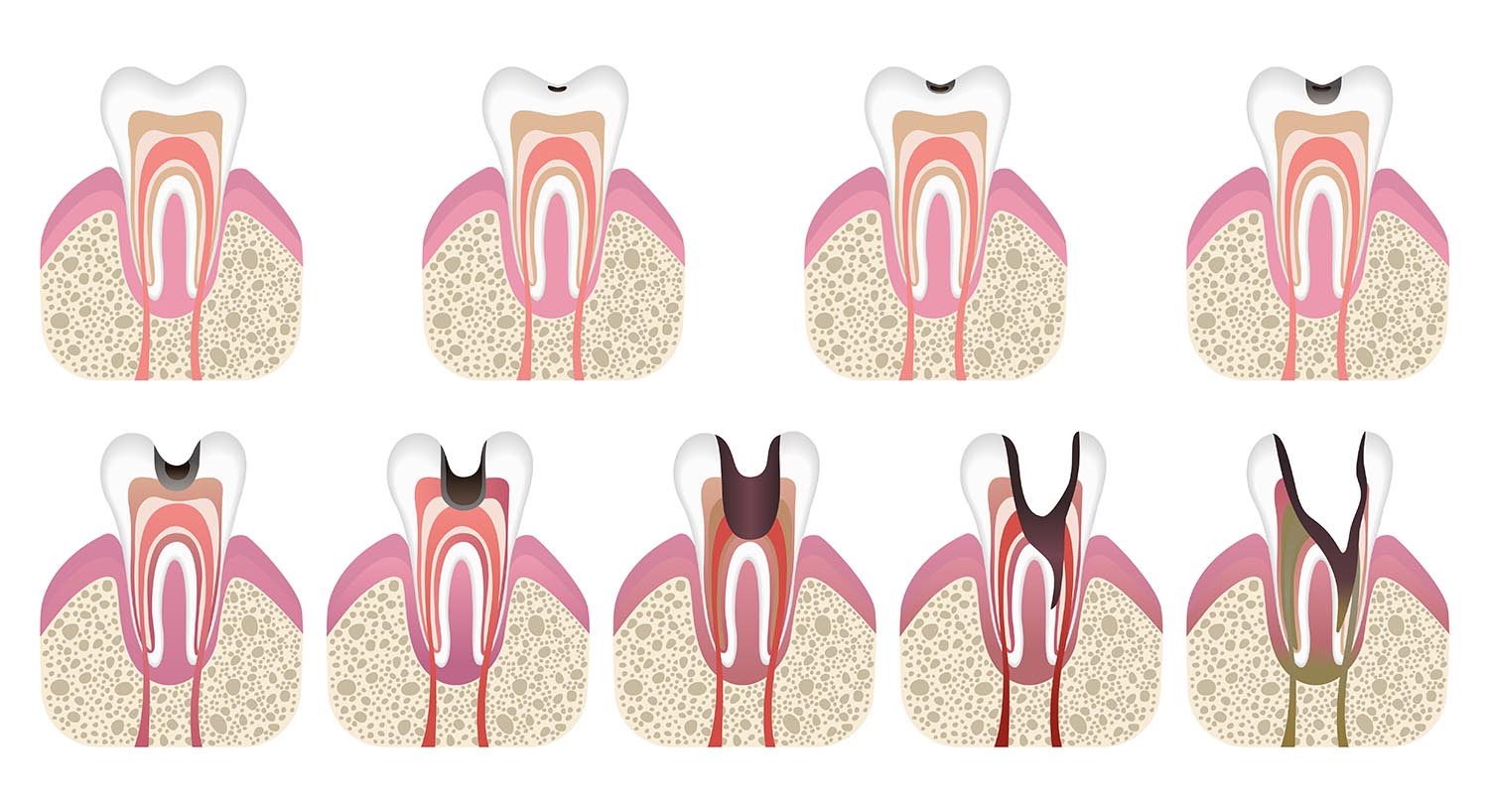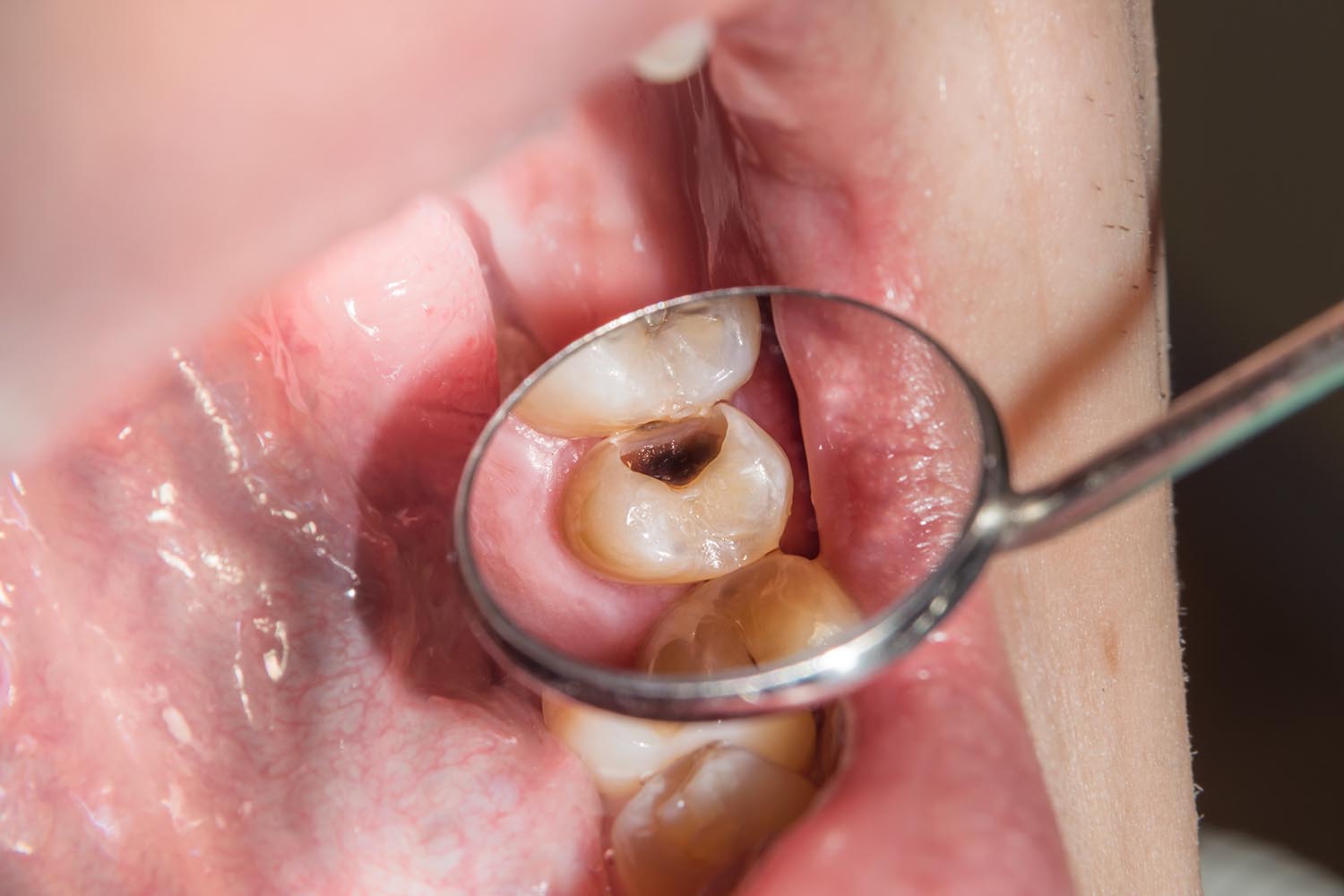Tooth decay is a common dental problem that affects people of all ages. It is essential to recognize the stages of tooth decay to address the issue promptly and prevent further damage to your oral health.

- Stage 1: Enamel Demineralization The initial stage of tooth decay is characterized by enamel demineralization. The enamel is the outermost layer of the tooth and the hardest substance in the human body. When exposed to acids produced by plaque bacteria or acidic foods and beverages, the minerals in the enamel start to dissolve, causing weak spots and white spots on the tooth surface. At this stage, tooth decay can be reversed with proper oral hygiene and remineralization techniques recommended by your dentist.
- Stage 2: Enamel Decay If left untreated, demineralization progresses to enamel decay. The weakened enamel begins to break down, forming a cavity or hole in the tooth. As the decay reaches deeper layers of the tooth, it can cause sensitivity, pain, and discomfort. Prompt dental intervention, such as fillings, is crucial to halt the progression of decay and restore the affected tooth.
- Stage 3: Dentin Decay When tooth decay advances beyond the enamel and reaches the dentin, it becomes more aggressive and destructive. The dentin is a softer layer beneath the enamel that contains tiny tubules connected to the tooth’s nerve centre. As the decay progresses, these tubules become exposed, resulting in increased sensitivity to hot, cold, and sweet stimuli. Dentin decay requires extensive dental treatment, such as dental fillings or crowns, to remove the decayed portion and restore the tooth’s structure.
- Stage 4: Pulp Involvement At this advanced stage, the decay has penetrated deep into the tooth, reaching the pulp chamber. The pulp contains blood vessels, nerves, and connective tissues vital for the tooth’s vitality. When the pulp becomes infected or inflamed due to untreated decay, it can lead to severe pain, abscess formation, and potential tooth loss. Root canal treatment may be necessary to remove the infected pulp and save the tooth.
Tooth Decay Prevention and Early Intervention are Key
Preventing tooth decay is always better than treating it. Adopting a thorough oral hygiene routine, including brushing twice daily, flossing daily, and regular dental check-ups, can help prevent tooth decay and detect signs of early-stage decay.
Early intervention is crucial to halt the progression of tooth decay and avoid more invasive and costly treatments.
In conclusion, the stages of tooth decay highlight the importance of early detection and treatment to preserve the longevity of your teeth and gums. Taking proactive steps to prevent decay, such as maintaining good oral hygiene practices and visiting your dentist regularly, is crucial.
Visit our dentists in Boondall for General Dentistry
Smile Time Dental in Boondall is committed to providing exceptional preventative and restorative oral health care. Our experienced team understands the significance of early detection and offers personalized treatment plans to address tooth decay at every stage. We prioritize your comfort and well-being, ensuring your dental experience is positive and stress-free.
As a locally renowned dental practice, we take pride in our commitment to excellence and our reputation for delivering exceptional dental care. If you’re concerned about tooth decay or wish to schedule a routine dental check-up, we encourage you to contact our practice today. Our friendly team will be delighted to assist you and arrange a booking at your convenience.
Remember, preserving your oral health is a lifelong journey, and Smile Time Dental is here to support you every step of the way. Together, let’s ensure the longevity of your teeth and gums for a healthy and radiant smile that lasts a lifetime.



